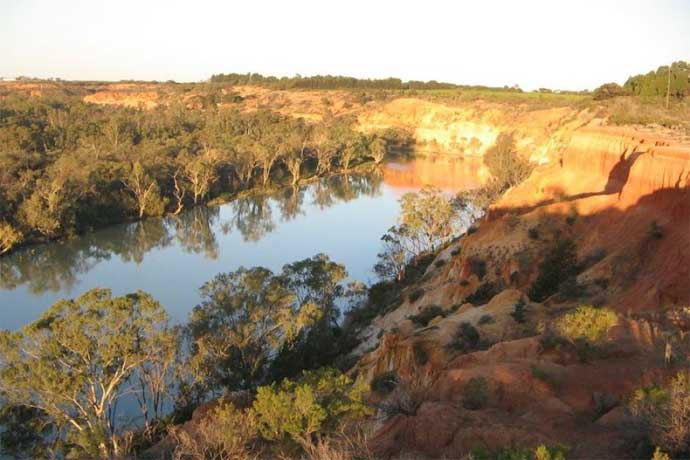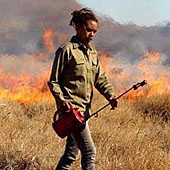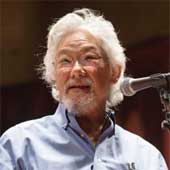You are here
Search by issue
History (97)
Gross Abuse (243)
country (78)
Assimilation & Oppression (181)
Genocide (104)
Homelands (80)
Culture (117)
Activism (96)
Politics (160)
Sovereignty (199)
Media Releases (154)
Self-determination (91)
Media Releases & News
- SU Media Releases
- 2024
- 2023
- 2022
- 2021
- 2020
- 2019
- 2018
- 2017
- 2016
- 2015
- 2014
- 2022
- 2013
- 2012
- 2011
- 2010
- 2009
- General Statements
- Sovereign Treaties: International Law
- Walkout Statement from Sacred Fire
- Proclamation (with video Readings)
- UDI's Explained
- What is 'Decolonisation'?
- Uluru Statement from the heart
- Sovereign Manifesto of Demands
- NO CONSENT to Recognition
- Submission on ILUA Amendment
- Uluru Statement video testimonials
- Uluru Statement grassroots videos
- Complexity of Treaty and Treaties
- Understanding Treaty & Treaties
- Official SU Meetings
Sovereign Union Menu
- Self Governance
- International
- Treaty - Treaties
- Sovereignty
- General Principles of Sovereignty
- First Nations sovereignty defined
- The Sovereignty Debate
- Sovereignty into Governance
- Reform: Practicing sovereignty
- Sovereignty after Mabo
- What about Sovereignty?
- Current sovereignty debate
- Sovereignty protest Qld
- Research papers & Theses
- Sovereignty never ceded -thesis
- SA sovereignty challenged
- Rosalie Kunoth-Monks leads the way
- Pacific Islanders Act 1875
- Asserting Aboriginal Sovereignty
- Aboriginal rights then & now
- Michael Kirby Oration
- Academic Paper : Songlines
- John Howard recognised sovereignty
- Queen Victoria: Crown owns nothing, Aborigines sovereign
- Rejecting 'recognition'
- Yingiya Mark Guyula Speach
- New Way Summits
- Decolonise
- August
- Australia: UN Questionnaire
- July
- Law against Genocide Bill
- Rally: 'Let us go Home'
- Ray Jackson: 30 years of light
Special Features
- History
- During Invasion
- Invasion
- 1788-2014 Invasion to Resistance
- 'The condition of the natives' 1905
- Mapping QLD massacres
- Cooks Instructions & Diary
- Whites & Blacks during the colonisation in the late 19th Century
- Australia's history of slavery
- Dad 'n Dave - The Qld killing fields
- Treatment of Aboriginal Prisoners
- 'Conspiracy of silence' blood baths
- British Parliament Report 1837
- Culture
- Horrors of North West WA
- Ignorance & Racism
- Invasion
- Post Invasion
- Stolen Remains and Collections
- Culture
- Kitty Wallaby: Dreamtime & colanisation
- Improve heritage management
- Unlock secrets of rock art
- Kurlpurlunu found in Central Australia
- Forgotten' Woolwonga tribe for 130 years
- First Nations rock art is at risk
- Language diversity threatened, study
- Languages Treasure trove
- Pressure to lose values and culture
- Languages reveal scientific clues
- Ignorance & Racism
- Father of the Stolen Generation
- Aboriginal counting myth won't go away
- Pleading letters to 'Protector'
- 1926 plan for an Aboriginal state
- First prisoner abuse inquiry 1905
- Legalised slavery: hidden reality
- The second dispossession
- Rottnest Island internment camp
- Meston's 'Wild Australia' Show 1892-1893
- Stolen Wandjina: Cultural Appropriation
- Whitefellas destroyed our bible
- Fraser Island Death Camp
- Intervention to kill self-determination
- Ongoing Warfare
- Pre Invasion
- Culture
- Genesis
- Out of Australia - Not Africa
- confirmation of genetic antiquity
- WA's Mid West History 30K
- 'Australian' peoples were first Americans
- How First Nations saw the Stars
- Ice Age struck First Nations people hard
- Kimberley paintings could be oldest
- Misunderstand First Nations science
- Sea-Level recorded
- James Cook's Secret Instructions - 30 June 1768
- Trading & Hospitality
- Landcare, Science, Agriculture
- Captain Cook
- During Invasion
- The Frontier Wars
- Memorial Marches
- The Frontier Wars
- Anzac Gathering 2012
- Aboriginal servicemen honoured
- 1905 Report WA's North
- Anzac Day Videos
- Battle for FF memorial
- From invasion to resistance
- Frontier Wars Remembered 2016
- Image Galleries
- Invasion & Sovereignty
- Invasion Day Callout for 26 January
- Memorial ignores frontier war
- The Freedom Fighters
- Truth about the Gulf country
- Conflicts/Massacres
- Massacres & Trophies
- Mixed Media
- Canberra 2016
- Closing the Homelands
- Homelands explained
- Central Articles
- Closing Homelands for mining
- Vital for ecosystems
- Terra nullius never went away
- Barnett's plan to axe homelands for years
- Fed Gov't $100 million deal with states
- Mining: $10,000 job sweeteners
- Abbott rejects international law
- Barnett's War on Health
- Anatomy of Racism in 2015
- Food supply autonomy needed
- Freedom Summit: WFD Media Release
- Funding: Confusing-fractured-racist
- It's OK to discriminate
- The demise of Coonana community
- Sovereign Union Articles
- Reports by State & Territory
- Video - Images - Audio
- Rallies
- Media Reports
- Homeland Closures
- 'Recognition' Constitution
- Nuclear Waste Dumps
Key Topics & Issues
- NT Detention Hearings
- NT Intervention
- Sovereign Embassies
- All Embassies - Map
- Embassies
- Canberra Tent Embassy
- Perth Sovereign Embassies
- Portland Sovereign Embassy
- Brisbane Sovereign Embassy
- Brisbane Embassy - Home
- What is Brisbane Embassy?
- 2013 content
- 2012 content
- New Stolen Generation rally
- Police arrest sovereigns
- Politically motivated eviction
- Brisbane - Eviction notice
- Brisbane Embassy meets CMC
- Brisbane conference 2012
- Charges dropped but ...
- Council meets Elders
- Embassy arrestees protest
- Embassy midnight raid
- Embassy to be shut down
- Fire destroys Embassy
- Musgrave heritage listing
- Sovereigns charges dropped
- Moree Sovereign Embassy
- Broome Tent Embassty
- Woomera Sovereign Embassy
- Airds Sovereign Embassy
- Gugada Sovereign Embassy
- Tent Embassy in Airds, Campbelltown
- Call for Embassy tolerance
- Embassy Articles & Media
- Land, Sea & Water
- Northern Murray Darling Basin
- Water Treaty Talks: Murray-Darling Basin Nations
- Mining Country
- Adnyamathanha people of the rocks
- Ancient approach to global emissions
- Danger: Developing the North
- First Nations Land Management
- Historical sites in NSW
- Clark and Mansell: trading beef
- David Suzuki: Aboriginals best bet
- Dingoes may save wildlife
- Fires support mammals - research
- First Nations had villages and farmed
- Homelands vital for fragile ecosystems
- Hunter gatherers Myth - Bruce Pascoe
- Kangaroos win after hunt with fire
- Race to protect ancient rock art
- Kakadu Park 40th Anniversary
- Land rights and the government
- Native 'wild' rice in Australia
- Native Title amendments slammed
- Ngoongar Grower group using Native Youlks
- WA Aboriginal Heritage Act overview
- Sovereign Neighbours
- West Papua - Freedom Flotilla
- Articles - Free West Papua Movement
- December
- October 2013
- September 2013
- Emergency Protest of Illegal Deportation
- FF activists a test for Abbott government
- West Papuans Deported to Port Moresby
- Six West Papuan's flee after ceremony
- Freedom Flotilla claims success
- Sacred water and fire celebrated
- Ceremony completed in secret
- Military buildup in destination port
- Men released: Treason charges pending
- Julie Bishop incites military action
- Threats to turn back boat
- Four arrested at FF Welcoming
- Time for human rights in Papua
- August 2013
- Media Files
- Articles - Free West Papua Movement
- Atooi Unification Ceremony
- Atooi now has jurisdiction
- Australia & Fiji union
- Canada Day: Time of Mourning
- Canada First Nations alliance
- Canada: Commercial fishing rights
- India: Ruling against mining co
- Indigenous rights struggle
- North American Indians seek Sovereignty
- Statue honors US freedom fighters
- The Creation of one world gov't
- Vanuatu: Pacific custom land tenure
- Arizona tribal law system
- Canada: Tsilhqot'in peoples win ruling
- Embassy meets Indonesians
- Grandmothers: worst ever stealing
- Ibans acquired native customary rights
- Maori did not cede sovereignty
- UN: Canadian Aboriginals in crisis
- West Papua - Freedom Flotilla
- The Invasion
- A day of sadness
- Health and Social Issues
- Suicides & Depression
- Suicides just happened?
- Nothing will be done about the suicides
- First Nations suicide rates
- Gov't not listening - People die
- 77 suicides in SA alone
- 996 deaths by suicide
- Hundreds will suicide if we wait
- Suicides: 'A humanitarian crisis'
- Suicide is humanitarian crisis
- Suicide epidemic worldwide
- Noongar x3 suicide rate
- Falsely arrested & drugged
- Cashless Welfare Card
- Family breakdowns causing repeats
- General Health Issues
- Government Policies
- Youth suicide at crisis point
- Negatively framing policies
- A little boy who hid under the bed
- Defend and Extend Medicare
- Call for help results in children stolen?
- Doctors in communities in WA reduced
- Children and human rights
- Our children more likely to be removed
- Justice? wake up WA
- Need for Bilingual schools
- Racism Effects
- Rosie Fulton
- Work-for-the-Dole Unhealthy
- Youth lost in prisons: Amnesty
- Suicides & Depression
- Gross Abuse
- Genocide and apartheid
- National
- States & Territories
- Suicides
- Imprisonment & Deaths
- International Critisism
- Genocide
- More Gov't Abuses
- Mining and Destruction
- Racism
- Racism Game in Australia
- 27% say it's OK to be racist
- Abbott backs out of Racism changed
- Genocide by Apartheid Australia
- How Bolt should be punished
- Racial discrimination in Australia
- Racism Media
- Racism driver for ill health
- Racism is a health issue
- Racism worse than Sth Africa
- Reform: Just Ask Black Australia
- Unpacking White Privilege
- Welcome to Dja Dja Wurrung Country
- White Australian National Anthem
- Solidarity
Media & Resources
Activism and Politics
- Activism
- Homelands
- For the record: Sovereignty Never Ceded
- Freedom Fighters memorial call
- Anthony Fernando 1864–1949
- Fernando's Ghost - Transcript
- Historic Videos and Images
- Australia’s dirty secret
- Deebing Creek development
- Pilbara pastoral strike
- Pro-Black Isn't Anti-White
- Truth Telling Uluru Statement
- UN slams anti-protest laws
- Whitlam: Legacy of Wave Hill
- Winyirin Bin Bin, Pilbara Strike
- Politics









